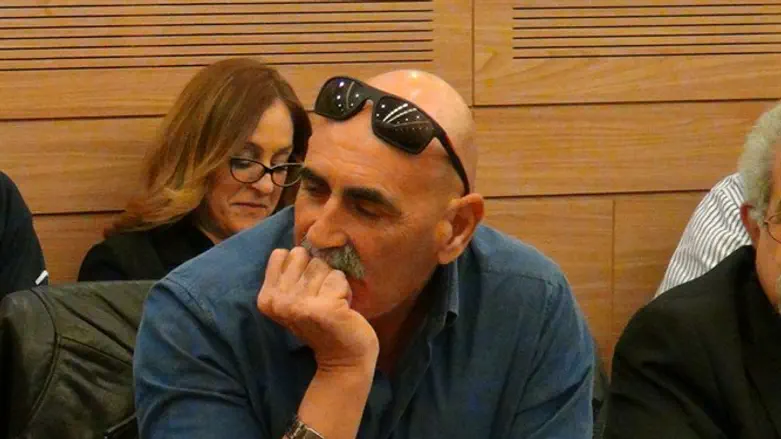
In the first interview with Arutz Sheva since being elected yesterday, incoming Yesha Council Chairman David Elhiyani, head of the Jordan Valley Council, tells about the goals he sets for himself in his new role, and first refers to the need for the Yesha Council alongside or above the regional and local councils.
"We need the Yesha Council because of the complexity of this area. There is the Union of Regional Councils that incorporates all the regional councils in Israel and there is the Local Government Center that brings together all the councils and municipalities to promote the interests of each body in its own right. We in Judea Samaria and the Jordan Valley, in a reality where the sovereign has been replaced by the army and most state laws don't apply, we have different needs and different challenges."
Elhiyani presents various challenges in Judea and Samaria compared to the rest of the country: "Take, for example, the regional infrastructure that's been abandoned for many years, such as roads, electricity, water, and more. We feel this acutely and our commitment is to bring about our ability to organize and influence decision makers and tell them 'We've been in the area for over 52 years. It's time, and it's our commitment to the residents, to improve the infrastructure in the area and to provide them with quality of life, beyond the political cause. No one's going to get us out of here and it's time to internalize this fact and give the minimal possibility of being equal to the entire population of Israel."
About his goals in his new role, Elhayani says: First of all, improving the quality of life of Judea, Samaria, and Jordan Valley residents. They've been discriminating against us for years, eliminating young settlement grants that could help the authorities. In the State of Israel, the municipal tax decree allows collection from the IDF camps to give quality of life to residents, money for education, society, culture, health, and more. The municipal order doesn't apply in Judea and Samaria. There are a lot of problems in the local authorities and that's the big challenge, to take that and advance the interests of these authorities.
"I'm known to fight and I'll continue to do so in the current role, providing quality of life for residents. Beyond the residents' aspect, it's time for the Yesha Council to become an influential body, a large political body, but I cannot do it alone. I'm sure all the heads of authorities will come together to do this together."
In his first phone call announcing his election, Elhayani made sure to make it about the call for sovereignty, around which all heads of authorities and Yesha Council leadership should unite. We asked him if he considered this a realistic and serious vision.
"Certainly it's serious. Anyone who doesn't live in Judea and Samaria and doesn't live the daily life in Judea and Samaria doesn't understand that there's no other option. As head of an authority, I can say that we employ more than 6,000 Palestinians every day and have lived with them for 52 years. When the Prime Minister talked about sovereignty in the Jordan Valley, some were happy and some raised an eyebrow, but those who were happy about it are the Palestinians. They want Israeli sovereignty in the Jordan Valley because they know that the PA is corrupt and that their rights are preserved, they know that under Israeli sovereignty they will enjoy the fruits of democracy. They may want it as much as we do. It's our duty to say it's in the national interest. The Palestinian population wants economic stability, labor, and a normative way of life. We see that and those who don't travel Judea and Samaria don't understand how their quality of life increases when Israel rules. They'll be happiest of all from Israeli sovereignty."
And what about the demographic issue? This also does not bother Elhayani who replies: "There are many models in the world of residency and more that can be adopted. In the end, they are more interested in good education, infrastructure, health, to be able to build a house with a full refrigerator than to be able to vote for the Knesset. Our commitment is to establish this issue and talk about as there's no other way but this. We'll also prove that this is true."